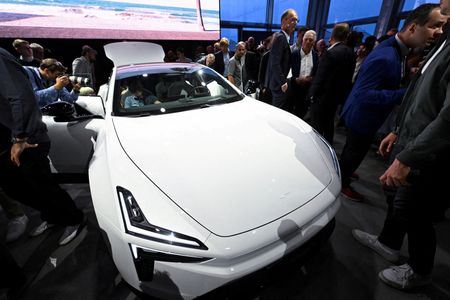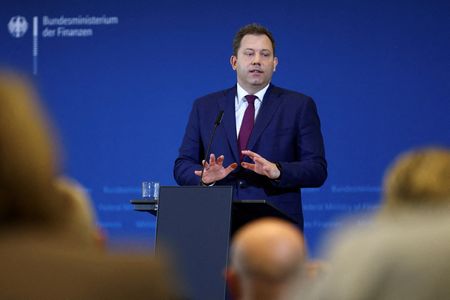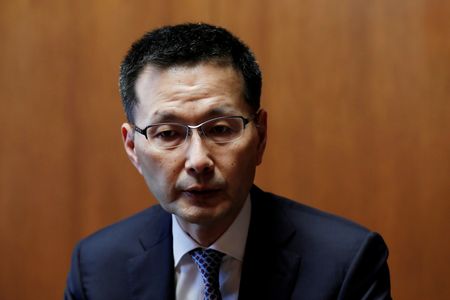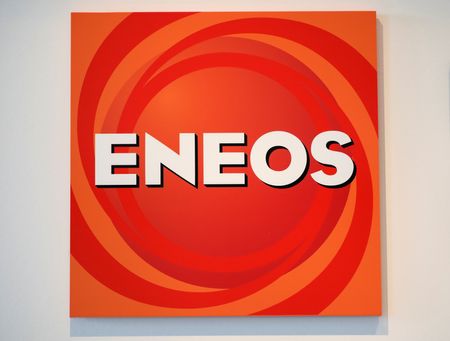By Marie Mannes and Zaheer Kachwala
(Reuters) -Polestar said on Wednesday it would conduct a reverse stock split – reducing the number of its existing shares while increasing their value – as the loss-making electric vehicle maker strives to retain its Nasdaq listing.
U.S.-listed shares of the company fell around 4% in premarket trading.
The news came as the company, majority-owned by China’s Geely Holding and its chair Li Shufu, reported a third-quarter net loss of $365 million, compared with a $323 million loss a year earlier.
Shares in Polestar, hit by U.S. tariffs, model delays, debts and fierce competition, have languished below $1 recently, prompting Nasdaq to warn it could be delisted from the exchange for failing to meet its minimum bid price requirement.
A reverse stock split does not change the value of investors’ overall shareholdings in a company.
“As market conditions remain challenging, we continue to take steps to make our organization and operations more efficient,” CEO Michael Lohscheller said in a statement.
Lohscheller attempted a similar share split during his time as CEO at now bankrupt EV truckmaker Nikola.
While third-quarter revenue rose 36%, Polestar was hit by costs related to so-called residual value guarantees in North America. Common in EV leases, these guarantees force Polestar to cover the gap when resale values fall short of promised levels – an increasingly costly risk as used EV prices slide.
The company has taken steps to stem losses, replacing its CEO, cutting costs and shifting to a dealer-focused model while leaning harder on Europe to offset weak U.S. demand, where buyers increasingly favor hybrids and gasoline cars.
When unveiling the Polestar 5 GT in September, the company said it would skip launching in the U.S. and China, two of the world’s most lucrative markets.
Polestar shares have fallen sharply from their $13 closing price on their debut in June 2022 after a merger with a so-called special purpose acquisition company.
As well as a weak share price, the company has struggled with its debt covenants, and has had to negotiate amendments with lenders to stay compliant.
(Reporting by Marie Mannes in Stockholm and Zaheer Kachwala in Bengaluru. Editing by Mark Potter)










